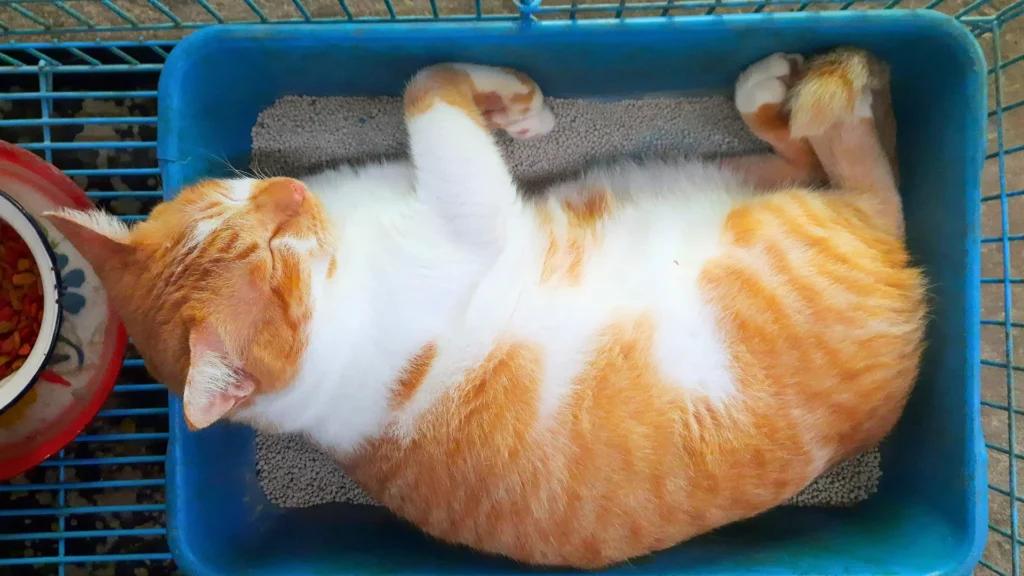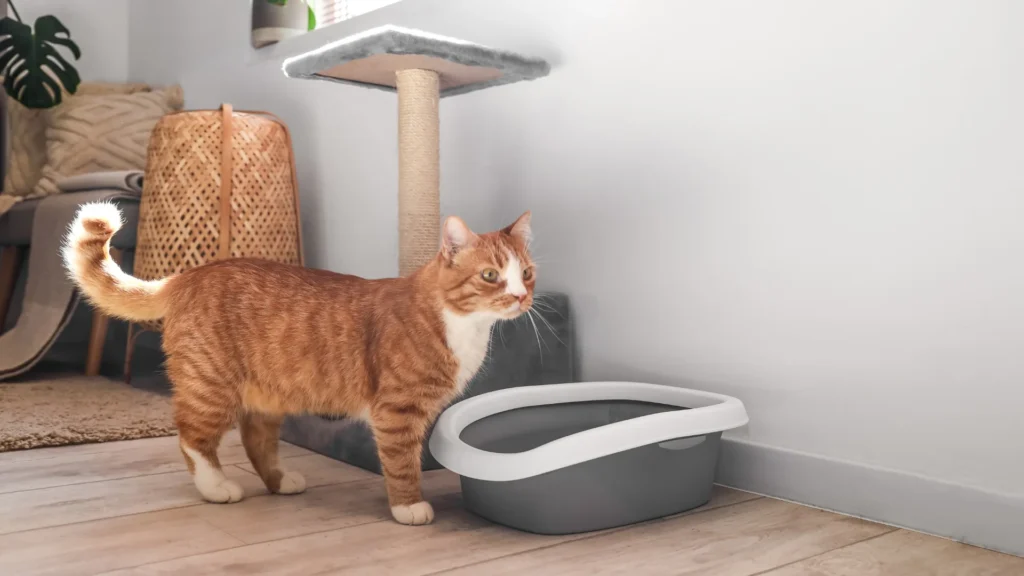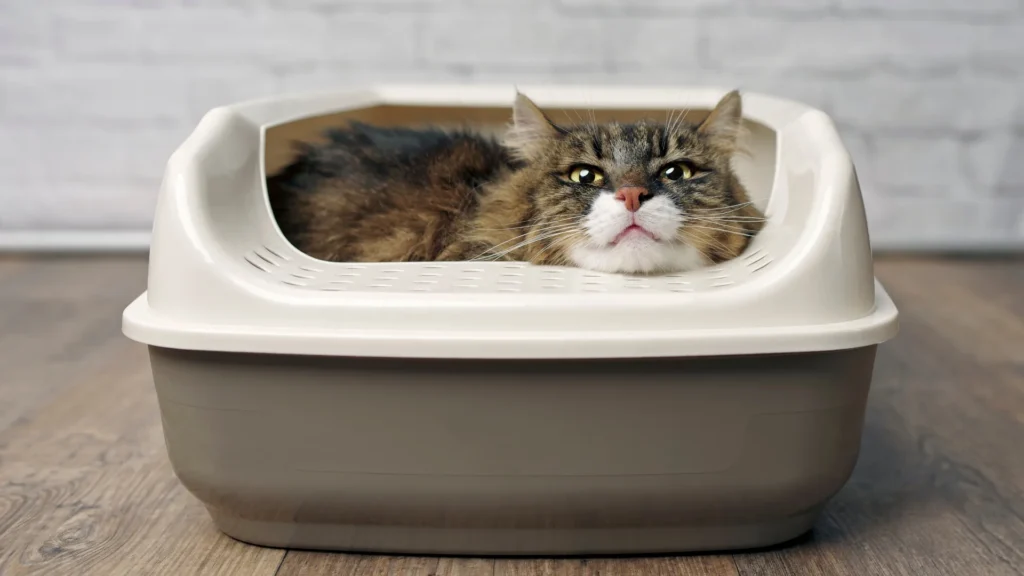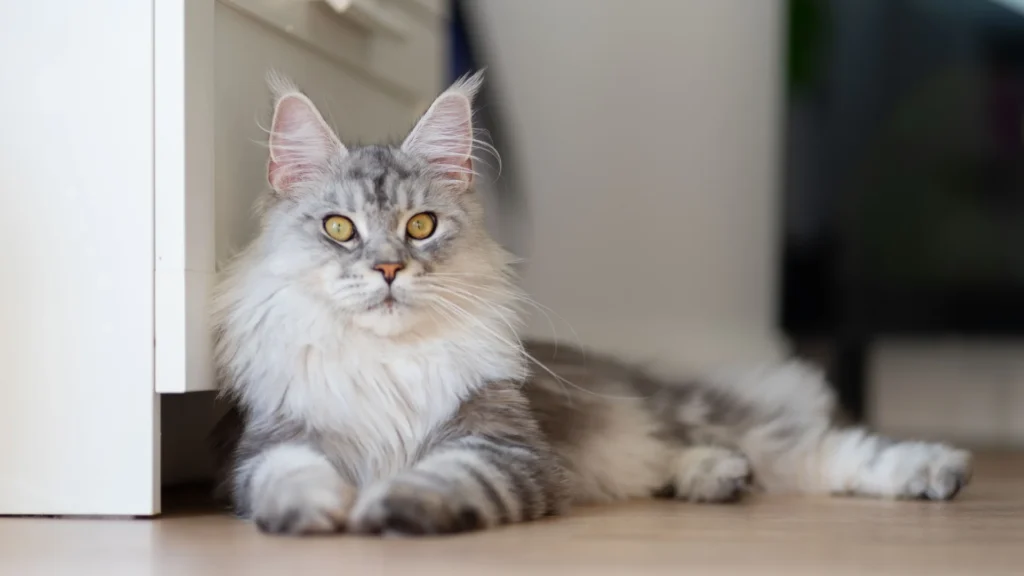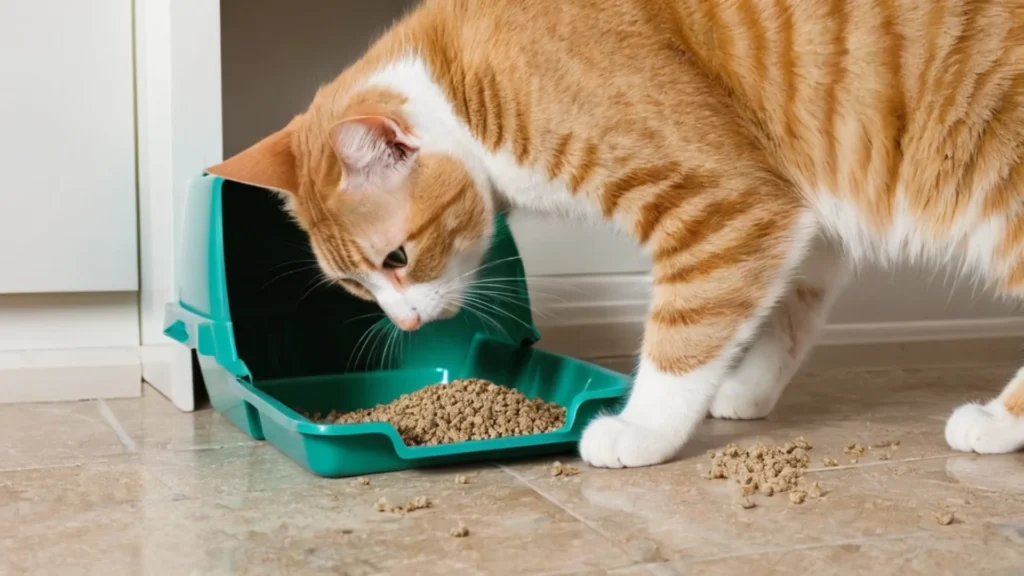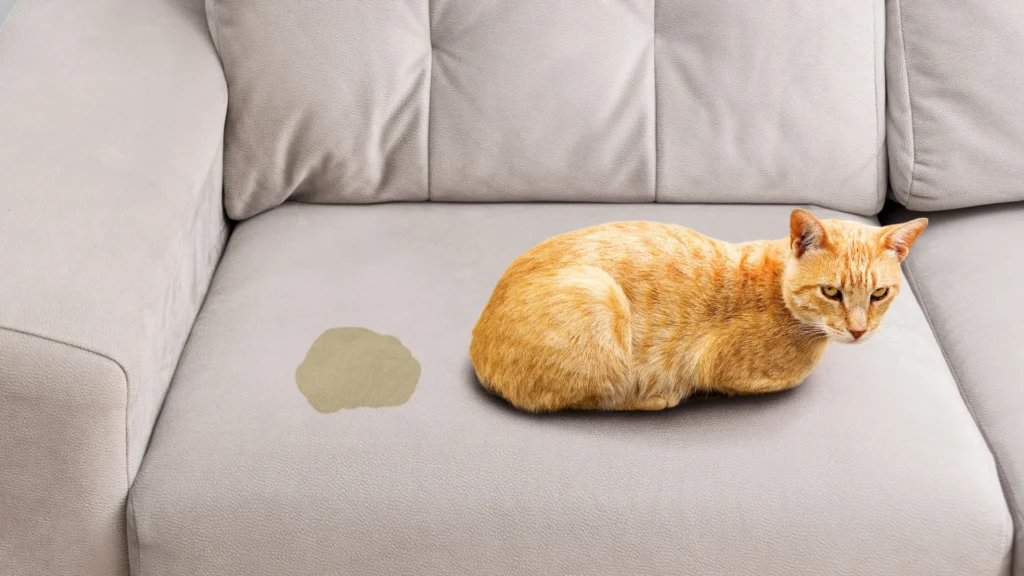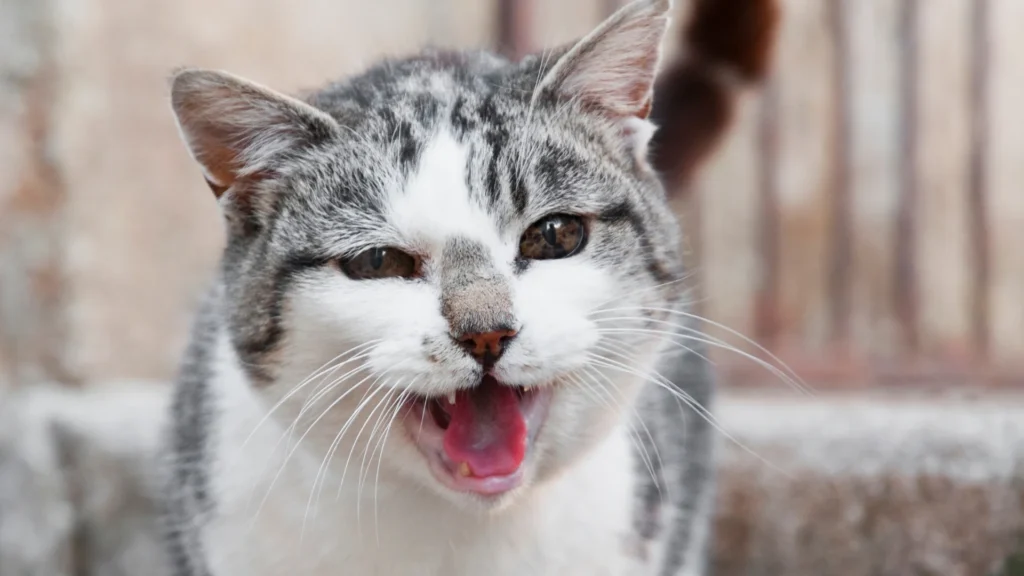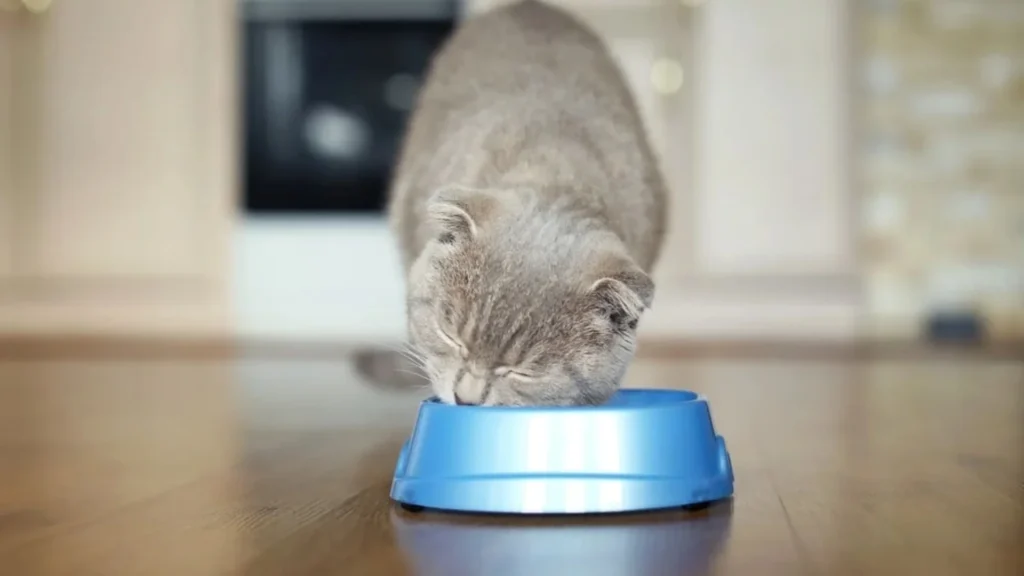Table of Contents
Have you ever found your cat sleeping in the litter box and wondered why? It might seem odd since cats are usually very clean animals. This behaviour can be a sign of various things, from health issues to feeling safe. In this post, we’ll explore some common reasons behind this unusual choice of napping spot and what you can do to help your furry friend. Let’s dive in and understand our cats a little better.
Reasons Why Your Cat Sleeps in the Litter Box

Addressing the common reasons why cats may choose to rest in their litter box can help pet owners recognize potential issues and discover suitable solutions.
1. Feeling Unwell (Health Issues)
Some of the time, a cat may feel sick because of issues inside their body, like a urinary tract infection, which can make going to the bathroom painful or uncomfortable.
When a cat remains in their litter box, it could be a sign they are not feeling well. If you take note of this, taking your cat to the vet can offer assistance figure out the issue and getting them the right therapeutic offer assistance.
2. Feeling Scared or Stressed ( Stress and Anxiety )
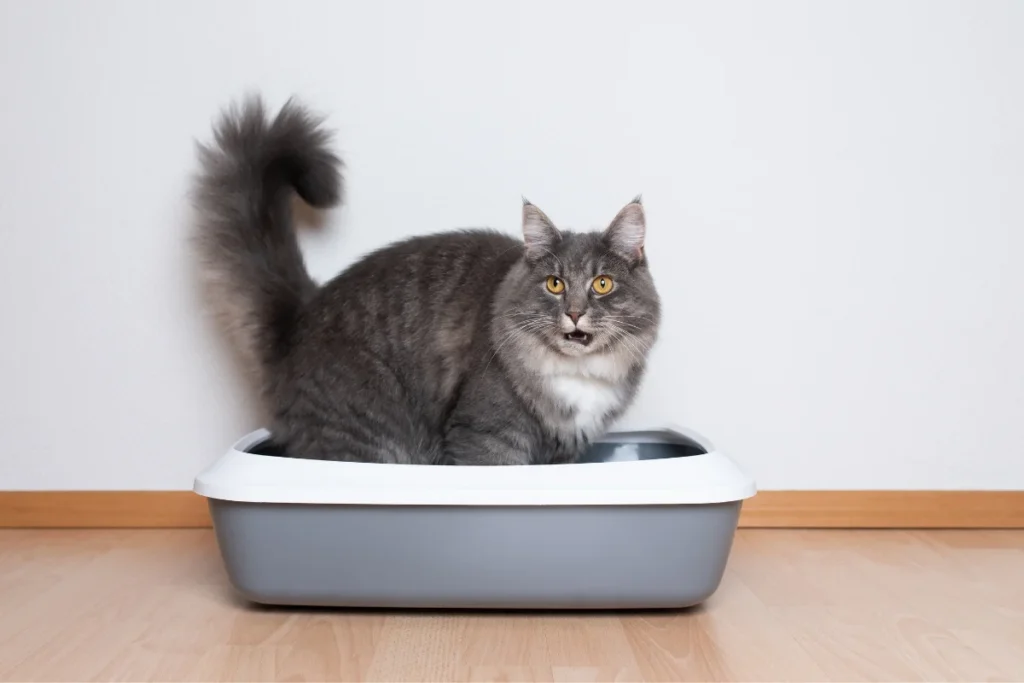
Cats can get focused as well. Huge changes in their home, someone new coming to live with them, or even modifying the furniture, can make them feel anxious.
The litter box might feel like a secure spot for them since it’s a put they know well. Making a difference your cat feel secure once more and giving them calm places to rest can make them feel way better.
3. Looking for Security
In homes with more than one pet, a cat might rest in their litter box to keep it for themselves or since they’re attempting to cover up from other pets.
It’s like picking a spot where they can observe everything while feeling protected. Making sure each cat has their own space and litter box can help them feel more secure.
4. Checking Territory (Regional Behavior)
Cats like to have their own space, and sometimes, resting in the litter box is their way of saying, “This is mine.” It’s more common when there are a few pets around, and they’re attempting to set boundaries.
Giving each cat their litter box and guaranteeing they have enough space can help reduce this behaviour.
5. Not Sufficient Comfy Spots (Need of Comfortable Spaces)
If a cat doesn’t have a nice, quiet put to rest, they might conclusion up lying in the litter box instead. This can happen in active homes where a lot is going on.
Cats require a cosy spot to call their own, so setting up many comfy beds or quiet areas away from the hustle and bustle can encourage them to rest someplace more fitting.
6. Feeling Cold (Looking for Warmth)
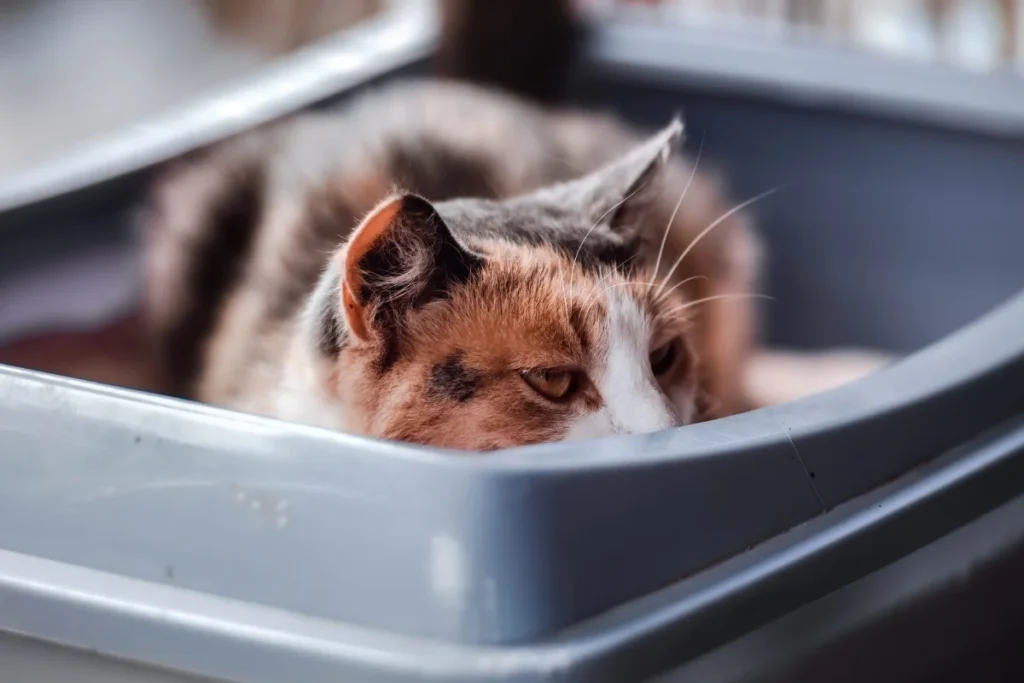
Cats look for warmth and comfort, especially when it’s cold. Sometimes, the litter in the box might be warmer than other places around the house. If a cat finds the litter box a cosy spot, they might choose to rest there to remain warm. Giving warm, comfortable bedding in quieter areas can encourage them to select a better much better; a higher; a stronger; an improved”
7. Not Sufficient Litter Boxes (Limited Assets)
In a domestic with numerous cats but not sufficient litter boxes, a cat might stay in one to claim it as their claim. Cats prefer to have their own space, even when it comes to where they go to the bathroom. Specialists propose having one more litter box than the number of cats within the house to unravel this issue.
8. Old Age or Mobility Issues (Physical Challenges)
Older cats, or those with joint pain, might find it difficult to move around. If a litter box is simpler to get into than their bed or favourite resting spot, they might fair choose to rest there for comfort. Ensuring their resting regions are easily accessible and comfortable can help with this issue.
9. Cats Adapting (Learning Behavior)
Cats who are still learning almost their environment might try resting in their litter box. It’s a stage a few go through as they figure out the best places to sleep, play, and eat. As they develop and learn, providing them with soft, comfortable sleeping areas can guide them to better habits.
Addressing The Issues
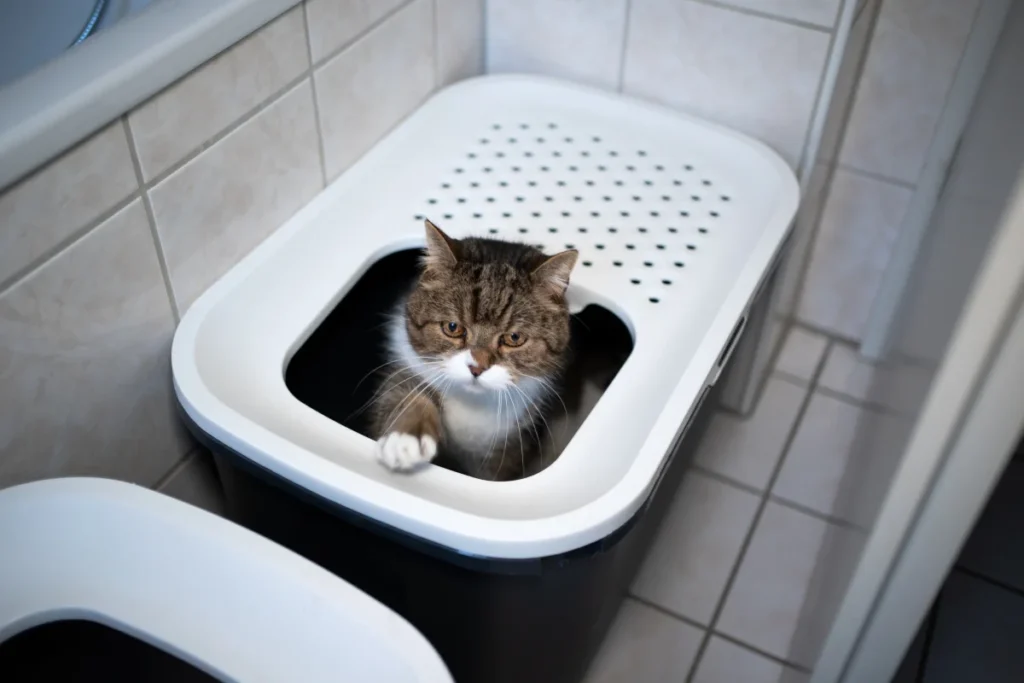
Health Check:
Plan a visit to the veterinarian to run the show out any therapeutic issues that can be causing this behaviour.
Increase Comfort:
Give different comfortable and engaging resting ranges absent from the litter box. Utilise delicate bedding and put beds in calm, secure areas.
Add more Litter Boxes:
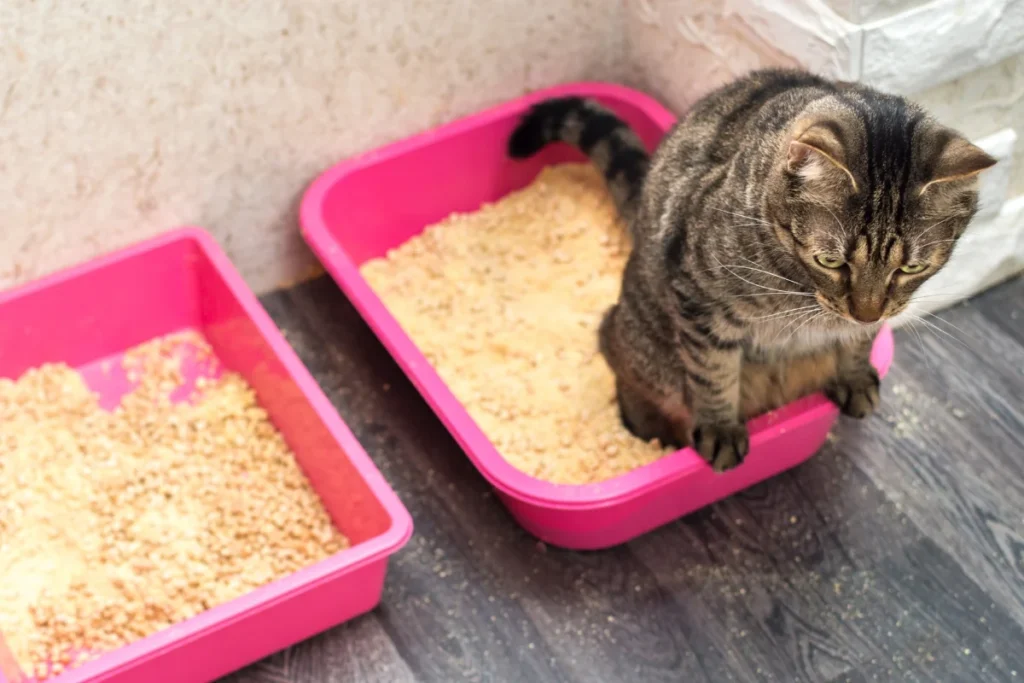
In multi-cat families, guarantee there are sufficient litter boxes accessible (one per cat furthermore one additional) to decrease competition and push.
Reduce Stresses
Recognize and minimize stressors in your cat’s environment. Consider utilizing pheromone diffusers, maintaining a schedule, and giving covering-up spots to assist your cat feel more secure.
Natural Enhancement:
Improve your cat’s environment with toys, scratching posts, and climbing zones to energize investigation and play, occupying their consideration from the litter box.
Clean the Litter Box Frequently:
Keep the litter box clean and odour-free. Cats lean toward not resting in messy zones, so a clean litter box is less welcoming as a resting spot.
Watch and Alter:
Pay consideration to any changes in your cat’s behaviour or inclinations and alter their environment appropriately to meet their needs.
Frequently Asked Question
This behaviour may indicate stress, illness, or anxiety. Make sure your cat has a quiet, comfortable place to sleep, and check with your veterinarian to check for any health problems.
Yes, it can indicate a urinary tract infection, kidney problems, or other health problems. Veterinarian visits are very important for diagnosing and treating underlying diseases.
Cats seek safety.
A restroom in a quiet, secluded area may feel like a safe place.
Evaluate your accommodation and make sure you have a comfortable and safe place to rest.
Maybe, Cats prefer clean, comfortable and warm places to sleep.
Try different beds and locations to find what your cat prefers and see if they make your cat feel safe and happy.
Eliminate environmental stressors, provide multiple comfortable sleep options away from the litter box, and maintain a clean and peaceful home environment.
Conclusion
Finding your cat asleep in their litter box signals various needs, from health concerns to seeking comfort. Addressing this involves vet checks, creating a stress-free environment, and providing ample, cosy resting spots.
Understanding and adjusting to your cat’s specific needs can guide them towards healthier sleeping habits, ensuring their well-being and happiness.

